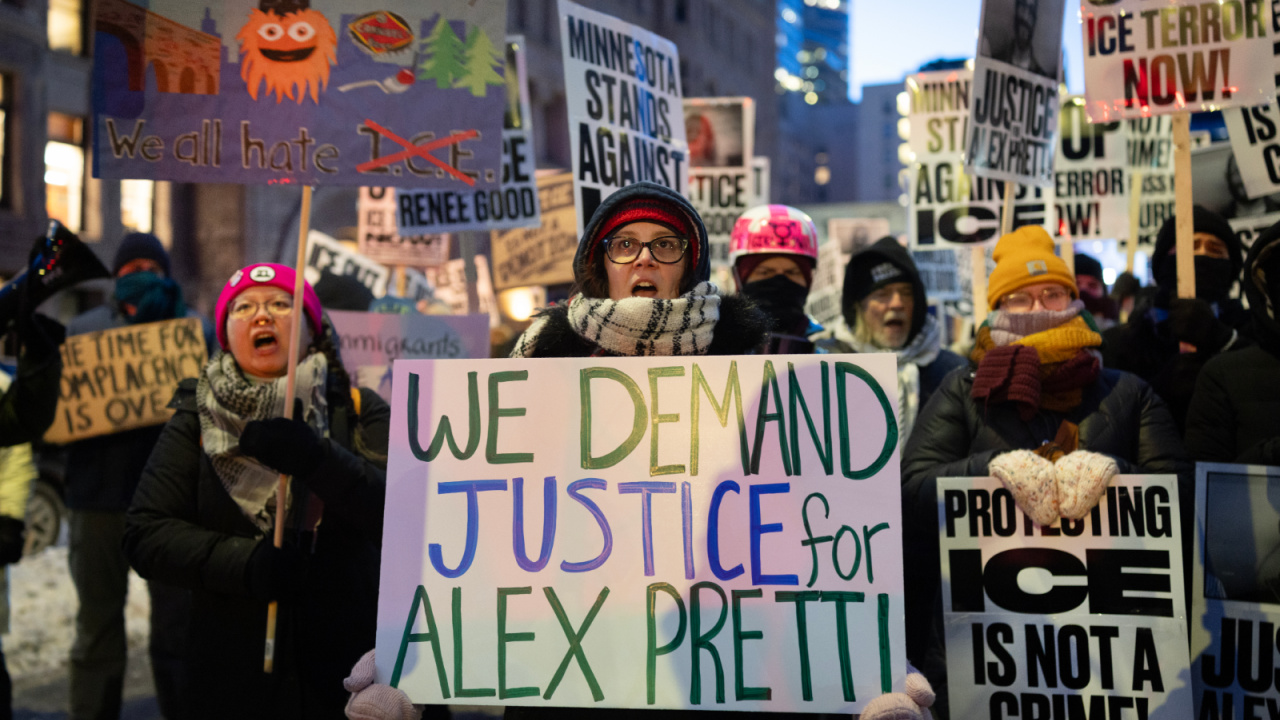
The Trump Administration Just Cut a Program That Supported Immigrants with Mental Illnesses — And Immigrant Rights Groups are Suing
The Trump administration dismantled a program that offers legal representation to detained migrants with mental illness or cognitive disabilities. The program, known as the National Qualified Representative Program (NQRP), offered qualified representation to those deemed mentally incompetent to stand trial. Without the program, vulnerable people will face deportation proceedings without legal representation. The administration is carrying out mass deportations, and the decision is the latest attack on immigrant rights.
Detained migrants with mental illnesses or cognitive disabilities are losing their right to legal representation
The Trump administration ended a program aimed to help some of the most vulnerable immigrants. For 12 years, the United States government offered immigrants with mental illnesses and cognitive disorders representation in deportation proceedings. Immigration advocacy groups are raising their concern that ending the program will create chaos in immigration courts.
The NQRP was created after a 2013 court order in case Franco-Gonzales v. Holder. José Antonio Franco-Gonzalez is a Mexican immigrant who spent nearly five years in federal detention without a hearing or lawyer. Franco-Gonzalez languished in detention with a mental disability and received no legal help in moving his case forward.
The Justice Department has already removed the NQRP webpage from its website.
The original decision was only applied to Arizona, California, and Washington. After the ruling, the Justice Department and the Department of Homeland Security adopted a similar program under the Obama administration.
Nine immigrant advocacy groups filed a lawsuit against the Trump administration
According to a lawsuit, advocacy groups are calling on the Trump administration to reverse course. The lawsuit alleges that the Executive Office of Immigration Review (EOIR) told the Acacia Center for Justice that the program was being terminated. Acacia Center for Justice is a contractor with EOIR that subcontracts legal service providers to work with immigrants in need.
The lawsuit alleges that the immediate termination of the program will negatively affect the 200 immigrants received representation.
“The government’s action in cutting funding for court-appointed counsel for people not competent to represent themselves in immigration court is not just heartless and cruel, but also discriminatory against people with disabilities,” Laura Lunn, director of advocacy and litigation at the Rocky Mountain Immigrant Advocacy Network, said in a news release.
The aggressive attack on immigrant rights is scaring law firms
Elite law firms are turning their back on pro bono work to help immigrant communities. According to The New York Times, one law firm, Gibson Dunn, originally joined in a lawsuit to restore legal protections for immigrants. However, fearing retaliation from the federal government, they reversed course.
Pro bono legal work is crucial in helping immigrant rights organizations in representing people. The sudden about-face from law firms is leaving organizations scrambling to continue their work in the face of an increasingly hostile administration.
“Large law firms that were frequent defenders of the rule of law have been unwilling and unable to take up that mantle,” Skye Perryman, the chief executive of Democracy Forward, told The New York Times. “We are seeing exponential increases in demand for our work, and we are going to continue to encourage the private bar.”




